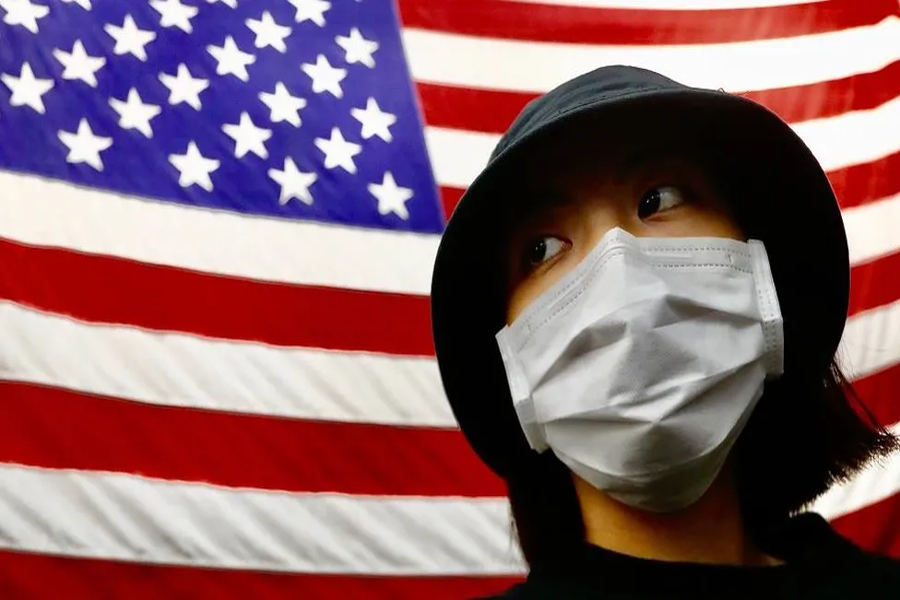

The rumour was old but effective: the Taiwanese were being fed "poisonous" pork imported from the US.
The weeks-old claim followed another: the Taiwanese government was secretly harvesting blood from citizens and giving it to the US to make a bioweapon to attack China. Both were swiftly debunked, reports BBC.
But this is a narrative that has been blooming in Taiwan ahead of Saturday's presidential and legislative elections.
"Yimeilun" or US scepticism, questions the faithfulness of Taiwan's biggest ally, portraying the island as a pawn exploited by America. Its ultimate goal, say analysts, is to drive a wedge between Taiwan and the US - and push the Taiwanese into the welcoming arms of China.
"There seems to be this narrative that the US will not support Taiwan, or will abandon it if there's a war, or the situation is not advantageous to the US," said Kuang-shun Yang, a disinformation researcher who coined the term in 2018.
Disinformation experts say China has a hand in spreading this message, and may even be creating it. Their evidence also points to Taiwanese close to Beijing.
It's not always conspiracy theories - most of the time it's a highlighting of news that shows the US in a bad light, or points to it as an untrustworthy superpower.
"For China, this is a battle for public opinion," said Puma Shen, a Taiwanese expert in Chinese disinformation and Democratic Progressive Party's legislature nominee.
"To persuade everyone that China is the better country is more difficult, but to persuade everyone that America is problematic is relatively easier… to China that would be considered a success."
When Taiwanese chip giant TSMC expanded in the US, it was described as American coercion and a "hollowing out" of Taiwan's resources. And the US arms sale to Taiwan was deemed as "cheating" the island of its money by sending it unreliable weapons.
These were among 84 types of US scepticism narratives discovered by think tank IORG between 2021 and 2023 on Chinese-language media outlets, social media, online forum PTT and messaging platform LINE.
Chinese provincial governments' propaganda departments and state media outlets amplified these narratives and in some cases were even the first-known sources.
However, most of the sources were Taiwanese politicians and media organisations friendly to China. There has long been suspicion of Chinese state influence and a 2019 Reuters report found evidence of mainland officials paying Taiwanese outlets for coverage.
The bioweapons rumour first surfaced in an unsubstantiated Taiwanese newspaper report which some suggested involved Beijing.
The US pork rumour began with online posts claiming, with no evidence, that the government was secretly passing off US pork as Taiwanese. Weeks later, others claimed poisonous US pork products that were traced to an old debunked report by a pro-China Hong Kong newspaper.
The idea that US pork could be unsafe has dogged discussions in Taiwan for years.
But it has returned right in time for what appears to be a tight presidential race. Mr Shen estimates that any disinformation campaign would only need to convince about 3 per cent of voters to affect the outcome of the election.
In the lead-up to the last election, in 2020, Taiwan saw a massive wave of anti-DPP disinformation that was believed to have come from China. Though it eventually failed - President Tsai Ing-wen won her second term by a landslide - it deeply alarmed many Taiwanese.
But the political landscape has since changed. For one, tensions with China have spiked - Beijing has repeatedly reinforced unification as a goal, offering peace while not ruling out the use of force. And two, faith in the US is dwindling.
Polls show the Taiwanese public still trusts the US far more than China. However, the annual American Portrait survey conducted by Taiwanese academics found that last year only 34 per cent of Taiwanese believe the US is a trustworthy country, compared to 45 per cent in 2021.
Another survey by the Taiwanese Public Opinion Foundation found that 51 per cent of Taiwanese in their early 20s identify with US scepticism narratives, the highest among all age groups.
The polling organisation said one possible reason was that younger Taiwanese were more likely to be sent to the frontlines of any possible war.
Most of this could be chalked up to America's actions. The disastrous troop withdrawal from Afghanistan, and a divided Congress' reluctance to continue funding Ukraine in its war, have contributed to Taiwanese fears that America would abandon it or fail to intervene if China attacks, say analysts.


 For all latest news, follow The Financial Express Google News channel.
For all latest news, follow The Financial Express Google News channel.